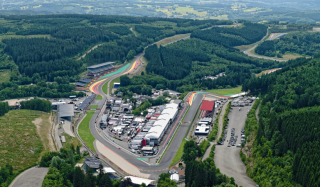A major exporting region, Wallonia sold goods worth around 50 billion euros worldwide in 2019, an increase of 11.2% compared to 2018. And it is no secret that products from "chemical and pharmaceutical industries" represent by far the largest sector in these excellent results, with 35% of the total. This is a continually expanding sector, and the only one not to be affected by the COVID-19 health crisis in 2020. Moreover, with around 360 companies, the life sciences sector is denser here than in France or Germany. How can this sucess be explained? Discover it in a new brochure highlighting Wallonia's strengths in hosting companies working in life sciences.
Firstly, by particularly active and innovative scientific and academic ecosystems, which Wallonia has created by investing equally in the growth of scientific excellence on the one hand, and entrepreneurial leadership on the other. Thanks to these exceptional ecosystems, Wallonia attracts many biotechnology companies from all over the world, which set up their research laboratories and/or production units here.
The presence of multinationals such as GSK Vaccines, Baxter, Johnson & Johnson, UCB, IBA, Zoetis, Abbvie , Eurogentec- Kaneka, Takeda,... also acts as a driving force for SMEs and start-ups, in addition to creating sustained relationships with clusters and other international partners.
Companies such as OncoDNA, Mithra, Univercells and Promethera are all examples of companies in the sector that were founded in Wallonia before expanding internationally.
Secondly, the favourable financial aid and tax environment for R&D undoubtedly represent further advantages for the sector. A recent evaluation by the Planning Bureau highlights Belgium and France as the most generous OECD countries in terms of the tax benefits granted to businesses for R&D. In Belgium, companies can benefit from an exemption of 80% on withholding tax on professional income due on the salaries of R&D personnel. This exemption is available to companies that conduct research in association with a university, college or approved scientific institution, as well as to young innovative companies.
Another exemption is granted, depending on the qualifications of the researchers, to doctors of hard or applied sciences, doctors of (animal) medicine or civil engineers and to researchers holding a master's degree (except for master's degrees in social sciences and humanities). Since 1 January 2018, R&D personnel who have certain bachelor degrees can also benefit from a 40% exemption from withholding tax on professional income.
Lastly, and the argument is valid for other sectors, Wallonia enjoys an exceptional geographic position. Located in the heart of Europe, it is at the centre of a large industrial and economic area, only two hours - by car, train or plane - from several European capitals and economic hubs. The region also has a particularly attractive multimodal network, as the Walloon motorway and rail networks are among the densest in Europe.
Also of interest are the three weekly rail connections to China and the growth of Liège airport, ranked as the world's best cargo airport for 2020 and a WHO hub, making it a key player in pharmaceutical air freight.
These advantages have naturally attracted a number of success stories. The French company Novasep, located in Seneffe, will produce the vast majority of the active substance needed to manufacture the future anti-COVID-19 vaccine. This contract should lead to the creation of around 100 jobs.
Also in the fight against the coronavirus, plasma-based treatments will be provided in Lessines, on the site of the Japanese company Takeda. If tests are successful, this site, which employs 1,200 people, will probably launch the large-scale production of the treatment for the commercial phase.
And Op2Lysis, a French biotech company currently developing a drug solution to treat the serious consequences of haemorrhagic strokes, plans to locate most of its R&D activities in the Liège region within six to twelve months.
However, Wallonia will continue to pay particular importance to innovation, which is essential in enabling the region to remain at the forefront of the biotech sector.
More information in the brochure published by the Walloon health competitiveness cluster BioWin, in collaboration with Wallonia Export-Investment Agency:
Strenghts of the Life Sciences Ecosystem in Belgium-Wallonia







